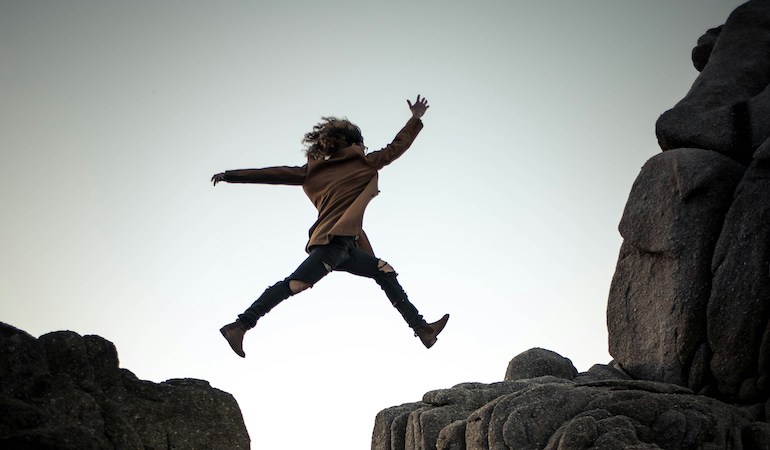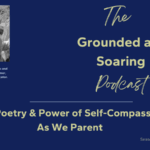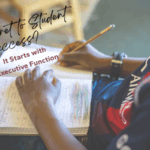The first story he wanted to tell me, in between huge bites from a burger, was about the massive grizzly bear. It involved five other teens from his patrol, one of their instructors, and huddling in phalanx formation with bear spray aimed and at the ready.
At the end of July 2018, I flew to Alaska to pick up our 16-year-old son after he completed thirty days of backpacking in the Alaskan wilderness as a participant in a NOLS (National Outdoor Leadership School) course for 16- and 17-year-olds.
Prior to coming to MMS in 2015, I spent the bulk of my career at a school in the East Bay, The Athenian School, at which all high school juniors are required to complete together—with expert adult guides—a 28-day backpacking trip in either the High Sierras or Death Valley. On their return, the students are dropped off eight miles away from campus and then run into a crowd of cheering families, friends, and teachers.
Having the privilege of teaching these students after their return, I was always awed by the positive transformative impact of their time together in the wilderness: invariably, they came back more mature, more confident, more open, and more appreciative of all they had. So, when we moved to Marin and our eldest left the Athenian School, my wife and I knew we’d need to replicate such an experience for our boys when they came of age. We are so glad we did.
Healthy Novelty Seeking
Adolescent psychiatrists tell us that there are a few universal characteristics of teenage brains. One of these is “novelty seeking”: teens yearn for the dopamine influxes that new and risky experiences give them. Our job then as parents becomes to guide them toward new experiences—especially those that involve risks—that fulfill these needs in healthy and generative, not destructive, ways. When we do not support healthy novelty experiences, our teens will likely still seek these, but they will find them through less-healthy means.
Because the teen brain also craves peer attachment and often looks to peers more than adults for meaning, challenging outdoor adventure programs composed of other teens, like the one our son just completed, are perfectly matched with adolescent developmental tendencies. We as their parents just have to be willing to knowingly allow our teens to face challenges and risks from which we instinctually want to shelter them (e.g., Alaskan grizzly bears!).
Few educational experiences so ideally match the developmental tendencies and needs of young people as well as such a NOLS program accomplishes. Daily, I am so happy to note that authentic Montessori education does as well. Maria Montessori’s guiding thesis was that children enter life with a profound curiosity to understand the world and be independent and effective in it.
A parent’s, school’s, and society’s job then is to create environments filled with opportunities, experiences, and guidance that harness that curiosity and drive toward independence at each developmental stage (or “developmental plane” as it’s referred to in Montessori parlance).
Thus, understanding toddler and primary children have a developmental yearning (known as “sensitive periods” by Montessorians) for order, we create well-organized environments that meet their desire for order, calm their nervous systems, and inspire them to focus. We then offer lessons that allow our youngest students to order their minds and relationships, and to learn how to create order in the physical environment themselves.
Harnessing Developmental Tendencies
As elementary-age children develop a deep drive for social connections, instead of putting desks in rows and punishing children for engaging with each other as they learn, we create a dynamic elementary environment in which children learn through working together.
We also match the elementary children’s tendency toward hero worship with studies that allow them the opportunity to learn in-depth about individual humans who have demonstrated tremendous accomplishments and capacities, and so, in turn, inspire our students to push themselves and their own growth toward becoming their best selves.
“The adult has a mission to fulfill … to follow the child, adapting him or herself to the child’s rhythm and the psychological needs of his or her growth.”
Maria Montessori
Adolescents yearn for confidence in their capacities for independence as emerging adults, so we provide them with an academic program that grounds their learning in the world beyond Montessori materials. Examples include the following:
- Connecting their classroom study of zoology to the donning of bee suits and opening the beehives in our garden, studying the biology and behavior of bees through scientific observation.
- Developing in our economics classes, real-world marketing campaigns for the MMS Junior High stand at our local farmer’s market.
- Linking the mathematical study of geometry to the surveying of our acre of farmland to determine the correct depth for drain digging.
The question that burns on the tip of adolescents’ tongues during school is, “Why does this matter?” For Marin Montessori students, this answer is always clear.
A famous catchphrase in Montessori circles is “Follow the child.” This does not mean “let the child do as s/he pleases.” Rather, it encourages us to harness and empower our children and adolescents’ inner drives and developmental tendencies so they may dive into the work needed at that moment for their optimal self-development. As Dr. Silvia Dubovoy, a Montessori trainer, states, following the child is “love with respect for the child’s own inner signals.”
The Homecoming Reward
As my son and I hung out in Anchorage, Alaska, the day after his return from the wilderness, I feted him with good meals all day. I felt a subtle sense of awe for the person who sat across the table from me.
As we sat there, I could remember him vividly as a little chubby-cheeked four-year-old with a bowl cut and riding a big-wheel toy bike. Here he was now, lanky, scruffy, and with eyes burning brightly with alert openness and incredible pride and happiness in what he had experienced and learned.
This had worked out well, just as it was meant to.

As Head of School, Sam is responsible for ensuring that Marin Montessori flourishes and that the School’s mission is brought to life each and every day.





